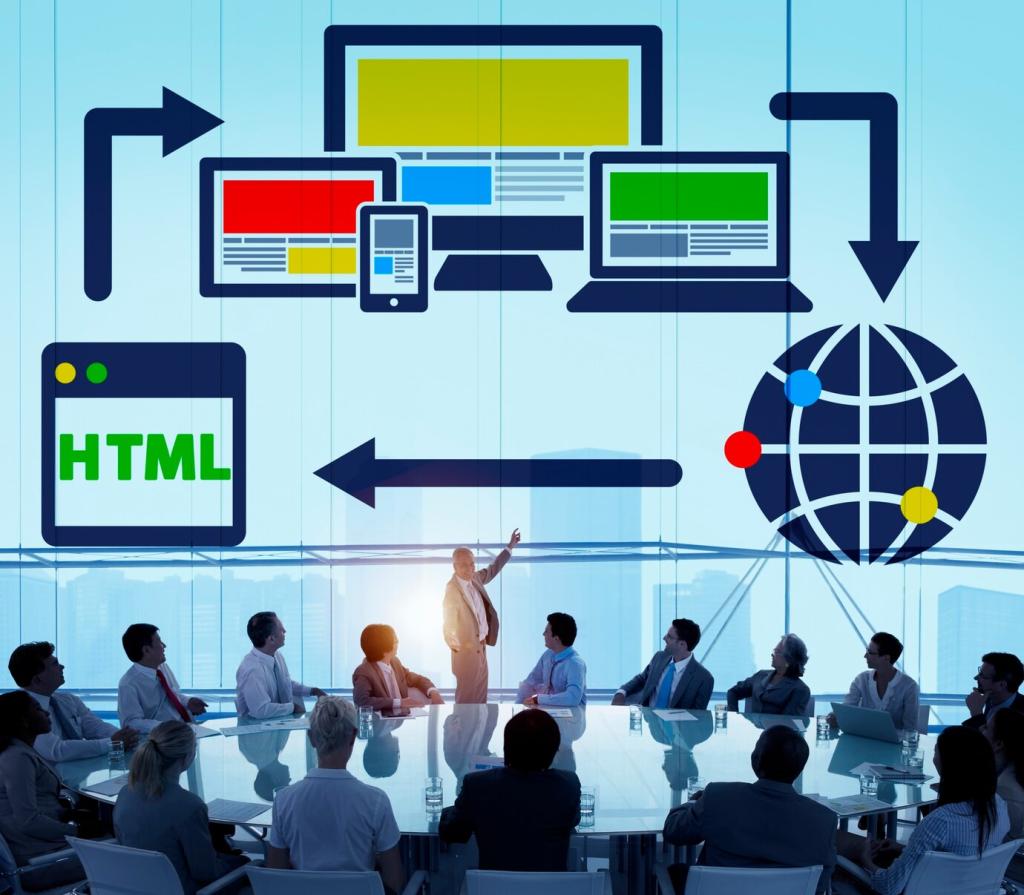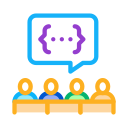Understanding Open Source Software Development Communities
Open source software development communities have redefined how technology is created, improved, and shared across the globe. These communities are collaborative ecosystems where individuals and organizations contribute their skills, resources, and perspectives to build software accessible to all. Understanding how these communities function, grow, and sustain themselves is fundamental for anyone interested in technology, collaboration, or innovation. This page explores the principles, people, challenges, and ongoing evolution of open source development communities.
The Essence of Open Source Communities
Principles of Collaboration
Collaboration is the fulcrum upon which open source communities pivot. Members communicate through mailing lists, forums, and chat platforms to discuss ideas, solve problems, and make decisions democratically. This collaborative spirit is essential, as it ensures that expertise and perspectives are pooled together, leading to more robust and inclusive software. Successful collaboration often hinges on clear contribution guidelines and an inclusive environment that welcomes newcomers as much as seasoned contributors.
Transparency and Openness
Transparency permeates every aspect of open source software communities, from the accessibility of source code to decision-making processes. Everyone can review the code, understand its architecture, report bugs, or suggest improvements. This openness empowers users to become contributors and engenders a high level of trust, cultivating a community that is accountable to itself and its users. Transparent practices are not only ethical but also drive technical excellence and innovation.
Shared Ownership
Shared ownership is foundational in open source environments. Unlike proprietary projects, where a single entity controls direction, open source projects distribute responsibility and influence among all contributors. This shared governance model enables a culture where achievements and challenges are collective, motivating members to take pride in the project. Contributors experience a unique sense of belonging and accountability, knowing that their work has a tangible impact on the project’s future.
Types of Participants and Roles
Contributors
Contributors form the backbone of open source projects. They write code, update documentation, create artwork, test features, and offer support in countless ways. Some contribute occasionally, while others participate daily. Contributors are often motivated by personal interest, the desire to solve a specific problem, or the pursuit of professional growth and reputation. Their dedication and diversity of skills propel project evolution and inspire others in the community.
Maintainers
Maintainers are entrusted with overseeing the day-to-day management of the project. Their responsibilities often include reviewing code submissions, merging pull requests, managing releases, and setting development priorities. They act as guides and mentors, helping newer contributors navigate the project and ensuring that standards are upheld. Maintainers play a crucial role in sustaining the project’s momentum while balancing technical quality and community relationships.
Users and Advocates
Users are a critical segment of open source communities—they test software, identify bugs, and provide feedback that shapes project direction. Some users become advocates, promoting the project through blog posts, talks, or by integrating it into other widely-used tools. Their real-world experiences and promotion help spread adoption, ensuring the community grows and the project continually adapts to its users’ evolving requirements.
Communication and Coordination
Open source communities utilize an array of communication channels, from mailing lists and chat rooms to real-time discussion forums and video calls. These platforms serve multiple purposes: discussing technical issues, organizing events, mentoring new contributors, or making governance decisions. Selecting the right channel and fostering clear etiquette ensures that members can communicate effectively, regardless of their location or background.
Motivation and Rewards
Many members participate in open source projects due to intrinsic factors such as curiosity, enjoyment, or the drive to solve a meaningful problem. The freedom to contribute, experiment, and learn within a collaborative setting is deeply rewarding. For some, the act of sharing and creating something valuable for others yields satisfaction that goes beyond traditional notions of compensation or recognition.

Governance and Decision Making
Models of Governance
Open source projects may adopt various governance models, including benevolent dictator-led, meritocratic, or democratic approaches. Each model outlines how authority is distributed, how decisions are made, and who holds responsibility. The governance model directly influences the community’s inclusivity, agility, and ability to respond to emerging challenges, affecting not only current members but also the ability to attract new ones.


Barriers to Participation
Despite their open nature, participants may encounter barriers such as language differences, unfamiliarity with development tools, or intimidating environments. Addressing these issues requires thoughtful onboarding processes, clear documentation, and mentorship opportunities. Many communities also recognize the importance of asynchronous communication and timezone flexibility to support a truly global membership.

Codes of Conduct
The adoption of codes of conduct has become a foundational practice in fostering inclusive and respectful environments. These documents establish community standards, outline unacceptable behaviors, and provide mechanisms for reporting and addressing violations. A well-enforced code of conduct reassures members, especially those from underrepresented groups, that their voices are valued and that everyone is expected to contribute positively to the community.
Sustaining Contributor Engagement
Maintaining active participation from contributors is an ever-present challenge. Factors like project complexity, unclear contribution pathways, or burnout can reduce community engagement. Successful communities continuously innovate ways to recognize contributions, distribute workloads, and foster a sense of belonging, ensuring that the energy and creativity needed for project success are always present.
Funding and Resource Management
Most open source projects rely on voluntary contributions and limited funding, which can constrain growth, maintenance, and infrastructure investments. Some projects address this through sponsorships, grants, or partnerships with organizations and businesses. Balancing sustainability with openness is complex, and communities must regularly assess financial health and seek innovative funding models to persist and thrive.
Adapting to Change
Rapid technological evolution, shifting user needs, and changes in community makeup demand constant adaptation. Communities that remain open to revising processes, encouraging experimentation, and learning from past mistakes are better positioned to withstand these dynamic forces. Fostering a culture of ongoing learning and problem solving helps open source communities move forward—even in the face of uncertainty or adversity.
